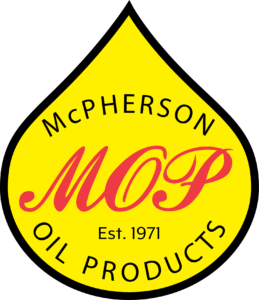Is The Right Oil Getting Into Your Engines
28 Feb 2019, Posted by in General
A fleet operator that intends to run a tight ship must ensure each truck comprising the fleet is fully equipped to deal with all the nuances of covering long distances, high mileages, and rough terrains. Generally, truck engines are sturdier than passenger cars’. However, that also means that they require more maintenance, and better quality engine oils.
It is critical that an engine remains perfectly lubricated, as it helps dissipate internal heat buildup. Truck engines, like other automobiles, comprise of several internal moving parts, and without the right lubricants, these parts would grind against each other causing wear and tear.
Having understood the importance of engine oil for your trucks, it is then important to question whether you’re filling your trucks with the right oil. How can you know?
Check the Quality
The American Petroleum Institute (API) states that in the best interest of your fleet, when sourcing engine oil, pay special attention to the quality. Manufacturers brand their products as either simply “meeting” quality standards, or the more genuine licensed branding is emblazoned on their oil products.
API urges customers to check its online database to verify whether a particular brand of engine oil is licensed and conforms to API standards. Additionally, prudence demands that individuals taking in engine oil deliveries should check to confirm whether the product meets quality criteria and is similar to what was originally marketed.
As a fleet manager, you should have the procurement department check deliveries to ensure their quality.
Internal Screening
Any fleet business should run an internal screening policy to ensure that bulk deliveries meet quality standards. This is an important safety net to ensure your truck’s engines aren’t exposed to the wrong oil. Experts in the industry stress that the application of incorrect viscosity grade can severely impact the life of engines by increasing wear and producing sub-optimum engine performance.
For this purpose, regardless of the size of fleet operations, an in-house sampling team that performs oil sample tests at regular intervals can lead to identifiable results. Oil analysis can reduce unscheduled downtime, improve equipment serviceability, extend useful life, and reduce maintenance costs. The team can help procure oil with the right viscosity, avoiding thin formulas that negatively impact durability or thicker mixes that are inefficient.
A sampling team works by taking a representative sample from any new order, marking it with proper labeling and sending it to a certified lab. The resulting data then provides the trucking company a reference to check future oil deliveries against. It also allows the company to verify quality, and ascertain performance improvements brought upon through the utilization of a particular type of engine oil.
Problems Associated With Bulk Deliveries
Between bulk deliveries, lubricants can become polluted by air-borne and solid contaminants that affect the quality of engine oil, which when used in trucks, can cause extensive damage. Additionally, oil distributors utilize the same tanker trucks to deliver varying engine oil grades.
Buildup of engine oil that hasn’t been cleared from a previous delivery will mix with any new oil introduced to the tank. This will adversely impact the viscosity of the new engine oil delivery.
After sampling the quality of oils being carried by tanker trucks, the API reported that 42% of total samples did not resemble the viscosity filed with the API of that particular oil product. This is an alarming number, and as such, it is vital that fleet operators partner with distributors with stringent quality control procedures or distributors that conduct third party quality audits.
Changing Oil when using Bulk Tanks
Fleet companies construct large underground bulk tanks where thousands of gallons of engine oil are stored. It is impractical to completely drain these tanks before new oil of a different grade is added, and overtime, this results in an oil bay with a unique blend of multiple engine oils.
The API recommends that oil tanks be drained down to 5% before inducting a new delivery. Engine oils are formulated to remain compatible when mixed with different products.
However, lubricant engineers employed by ExxonMobil state that the seriousness of the issue is misplaced; instead of worrying about compatibility, the effect on performance is of greater concern.
Newer formulas that offer enhanced viscosity and improved oxidation for added heat release will see their benefits diluted when mixed with inferior or older engine oil. Following on from this, the API categorically states that prudence must be displayed when transitioning from oil CJ-4 and CK-4 and that a complete drain be carried out as the presence of older oil would impact performance gains of the CK-4.
This is just one example and this diligence must extend regardless of a switch to FA-4, CK-4, or CJ-4 oil. The best practice is to ensure a complete drain before using different engine oils. Managing a fleet is no easy task, and a good practice to follow is to always use premium quality materials, which help extend the life of your machinery; reducing costs in the longer run.
About: McPherson Oil is proud to distribute ExxonMobil products in the southeast including Alabama, Arkansas, Florida Panhandle, Georgia, Louisiana, Mississippi and Tennessee.
